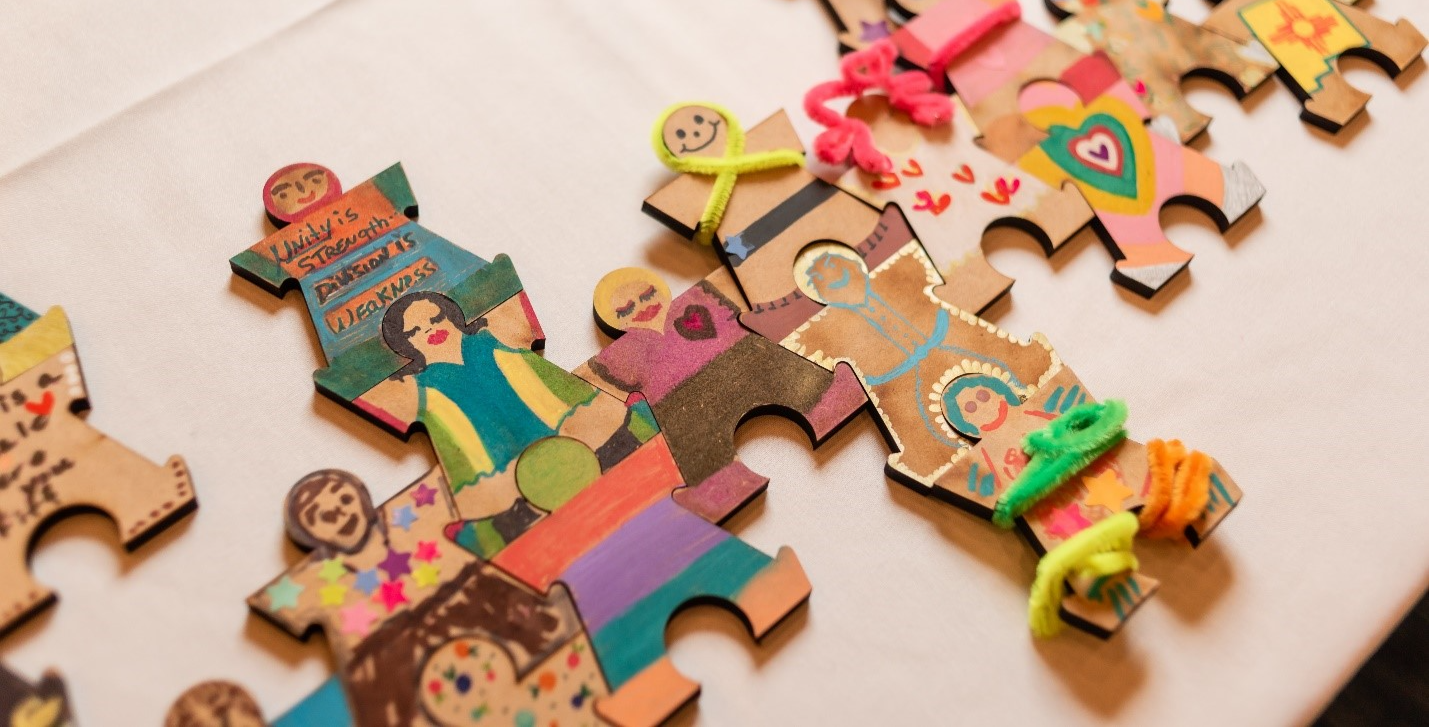Collective impact is based largely on the concept that we can do more together than apart, which holds true under the assumption that we can coordinate, organize and execute as a unit. This assumption doesn't always hold true and the implications for getting it wrong require serious attention.
Anyone interested in social change knows that they can't do it alone. Society, after all, is a collective endeavour -- even if Margaret  Thatcher suggested it didn't exist. Thatcherites aside, that is about where agreement ends. Social change is complex, fraught with disagreements, and challenging for even the most skilled organizer because of the multitude of perspectives and disparate spread of individuals, groups and organizations across the system.
Thatcher suggested it didn't exist. Thatcherites aside, that is about where agreement ends. Social change is complex, fraught with disagreements, and challenging for even the most skilled organizer because of the multitude of perspectives and disparate spread of individuals, groups and organizations across the system.
Social media (and the Internet more widely) was seen as means of bridging these gaps, bringing people together and enabling them to organize and make social change. Wael Ghonim, one of the inspirational forces behind Egypt's Arab Spring movement, believed this to be true, saying:
If you want to liberate society all you need is the Internet
But as he acknowledges now, he was wrong.
He wants us to design social media that drives real change.
Ghonim's beliefs were not illogical as he discusses in the Ted talk referenced above. He espoused a belief about collective action that echoes what leadership consultant and author Ken Blanchard proclaims:
"None of us is as smart as all of us"
Blanchard's quote is meant to illustrate the power of teams and working together; something that we can easily take for granted when we seek to do collective action. Yet, what's often not discussed are the challenges that our new tools present for true systems change. It's not just about bringing people together with tools, those tools, environments and interactions need to be designed. That means applying intention and having a process to make that intention real.
Complex (social) systems thrive on diversity, the interaction between ideas and the eventual coordination and synchrony between actions into energy. That requires some agreement, strategy and leadership before the change state becomes the new stable state (the changed state). Change comes from a coalescing of perspectives into some form of agreement that can be transformed into a design and then executed. It's messy, unpredictable, imprecise, can take time and energy, but that is how social change happens.
At least, that's how it has happened. How it's happening now is less clear thanks to social media and it's near ubiquitous role in social movements worldwide. What was first possible because of the novelty and relative straightforwardness of the Internet world has become much more complex as the diversity of voices, media streams and volume of information all increase.
Complicating complexity
The same principles underpinning complex social systems hasn't changed, but what we're seeing is that the psychology of change and the communications that takes place within those systems is, particularly with globalized media. When one reviews or listens to the stories told about social change movements from history, what we see over and again is the power of stories.
Stories take time to tell them, are open to questions, and can get more powerful in their telling and retelling. They engage us and, because they take time, grant us time to reflect on their meaning and significant. It's a reason why we see plays, read novels, watch full-length films, and spend time with friends out for coffee...although this all might be happening less and less.
Social media puts pressure on that attention, which is part of the change process. We invest in what we pay attention to.
Social media's short-burst communication styles -- particularly with Tweets, Snapchat pictures, Instragram shots and Facebook posts -- make it immensely portable and consumable, yet also highly problematic for expressing longer narratives. The social media 'stream' provides a format that tends to confirm our own beliefs and perspectives, not challenge them, by giving us what we want even if that's not necessarily what we need for social change.
When we are challenged to think harder, work through complicated issues, or consider perspectives that might widely counter our own the anonymity, lack of social cues, immediacy, and reach of social media can make it too easy for our baser natures to override our thoughts and lash out. Whether its Wael Ghomim and Egypt's Arab Spring or Hossein Derakhshan and Iranian citizen political movement or the implosion of the Occupy movement , the voices of constructive dissent and change can be overwhelmed by infighting and internal dissent, never allowing that constructive coalescing of perspective needed to focus change.
Collectively, we may be more likely to reflect one of the 'demotivation' posters from Despair instead of Ken Blanchard:
"None of us is as dumb as all of us"
Social media, the stream and the hive
Ethan Zuckerman of the MIT Media Lab has written extensively about the irony of the social insularity that comes with the freedom and power online social networks introduce in previous post I wrote. Social networks can create spaces for ideas to mix and collective actions, formed.
The strength of a collective impact approach is that it aims to codify and consolidate agreement, including the means for evaluating impact. To this end, it's a powerful force for change if the change that is sought is of a sufficient value to society... and that is where things get muddy. I've personally seen many grand collaboratives fall to irrelevancy because the only agreements that participants can come up with are broad plaudits or truisms that have little practical meaning. The collective activity focusing too much on agreement might fail to consider whether those agreements are on the right things.
Words like "impact", "excellence", "innovation" and "systems change" are relatively meaningless if not channeled into a vision that's attainable through specific actions and activities. The specifics -- the devil in the details -- comes from discussion, debate, concession, negotiation and reflection, all traits that are often missing when issues are debated via social media.
What does this mean for collective impact?
If not this, then what?
This is not a critique of collective activity, because working together is very much like what Winston Churchill said about democracy and it's failings in that it is still better than the alternatives. But it's worth asking some serious questions and researching what collective impact means in practice and how to we engage it with the social tools that are now a part of working together (particularly at a distance). These questions require research and systemic inquiry.
Social media is no longer something that takes place on the side, but is becoming a part of project work, community mobilization, and building coalitions and movements and thus is now part of the collective impact conversation on many issues. The issue is less about social media per se, but the discourse and communication patterns that social media is reflecting in everyday work.
Among the reasons brainstorming is problematic is that it fails to account for power and for the power of the first idea. Brainstorming favours those ideas that are put forward first with participants commonly reacting to those ideas, which immediately reduces the scope of vision. A far more effective method is having participants go off and generate ideas independently and then systematically introducing those to the group in a manner that emphasizes the idea, not the person who proposed it. Research suggests it needs to be well facilitated [PDF].
There may be an argument that we need better facilitation of ideas through social media or, perhaps as Wael Ghonim argues, a new approach to social media altogether. Regardless, we need to design the conversation spaces and actively engage in them lest we create a well-intentioned echo chamber that achieves collective nothing instead of collective impact.
Photo credit "All Power to the Collective" to Mike Benedetti used under Creative Commons licence via Flickr (original artist, Graffito)





